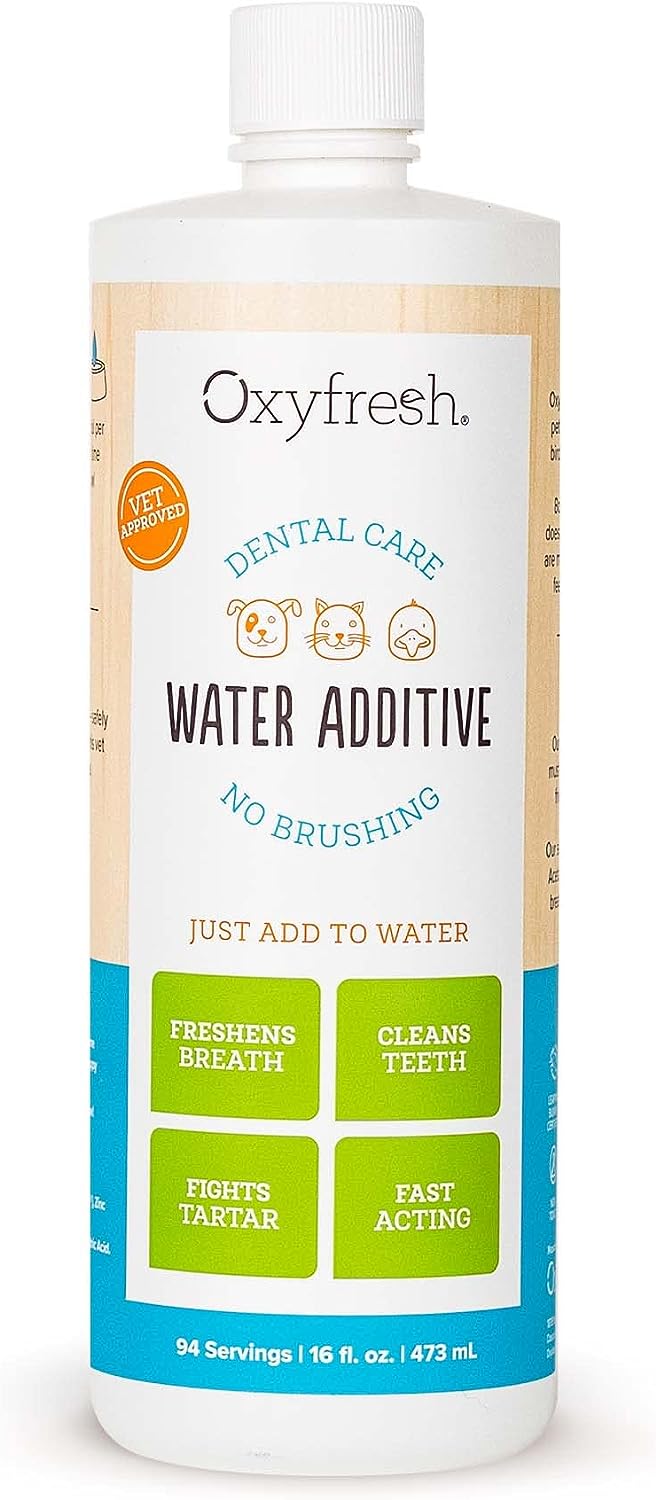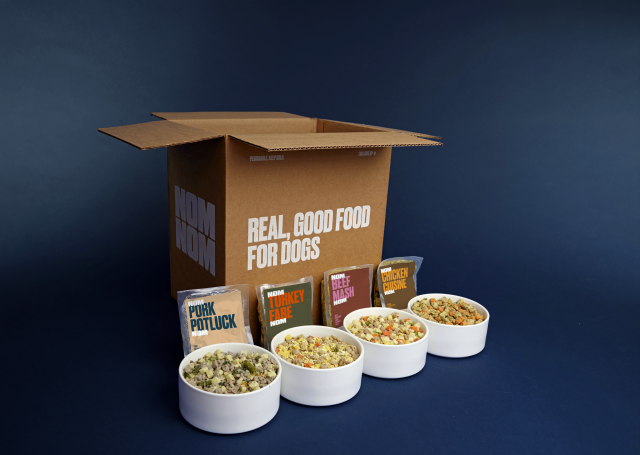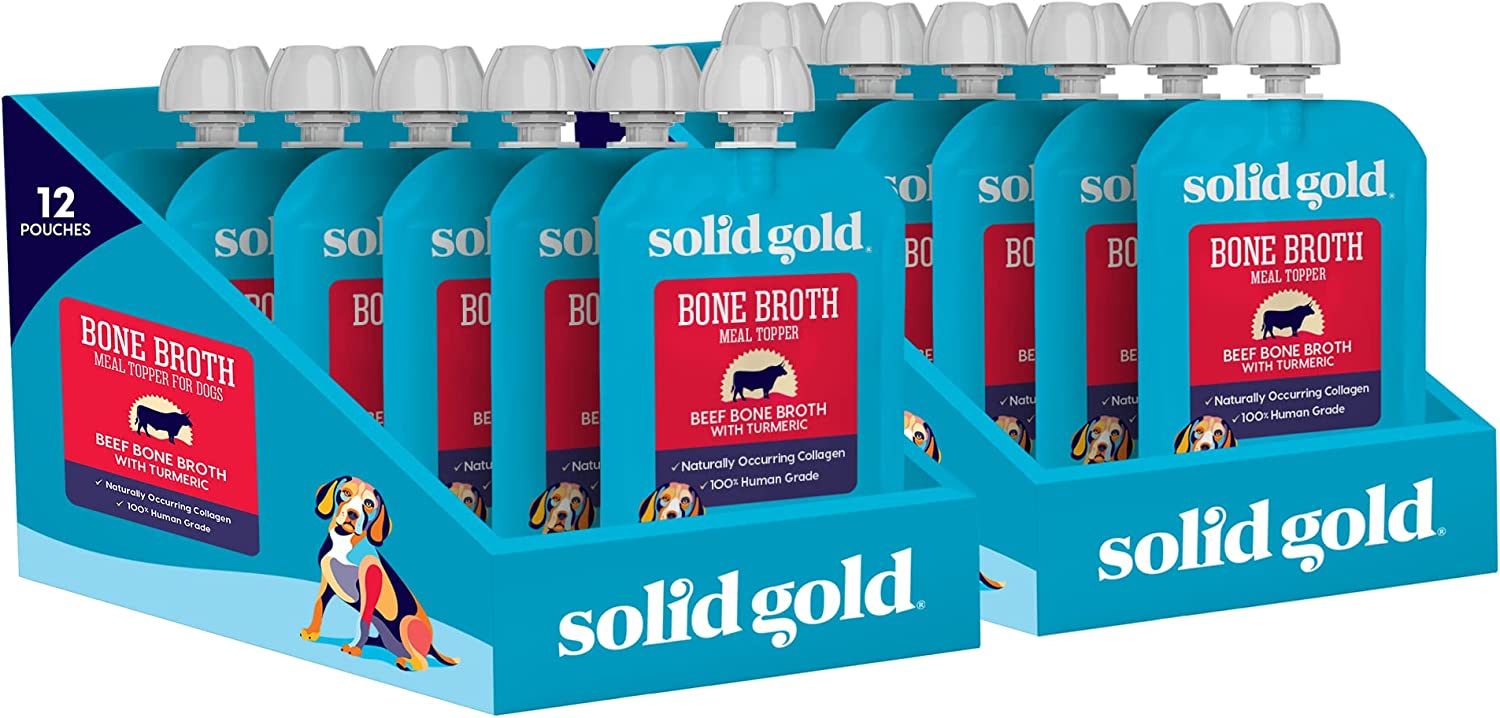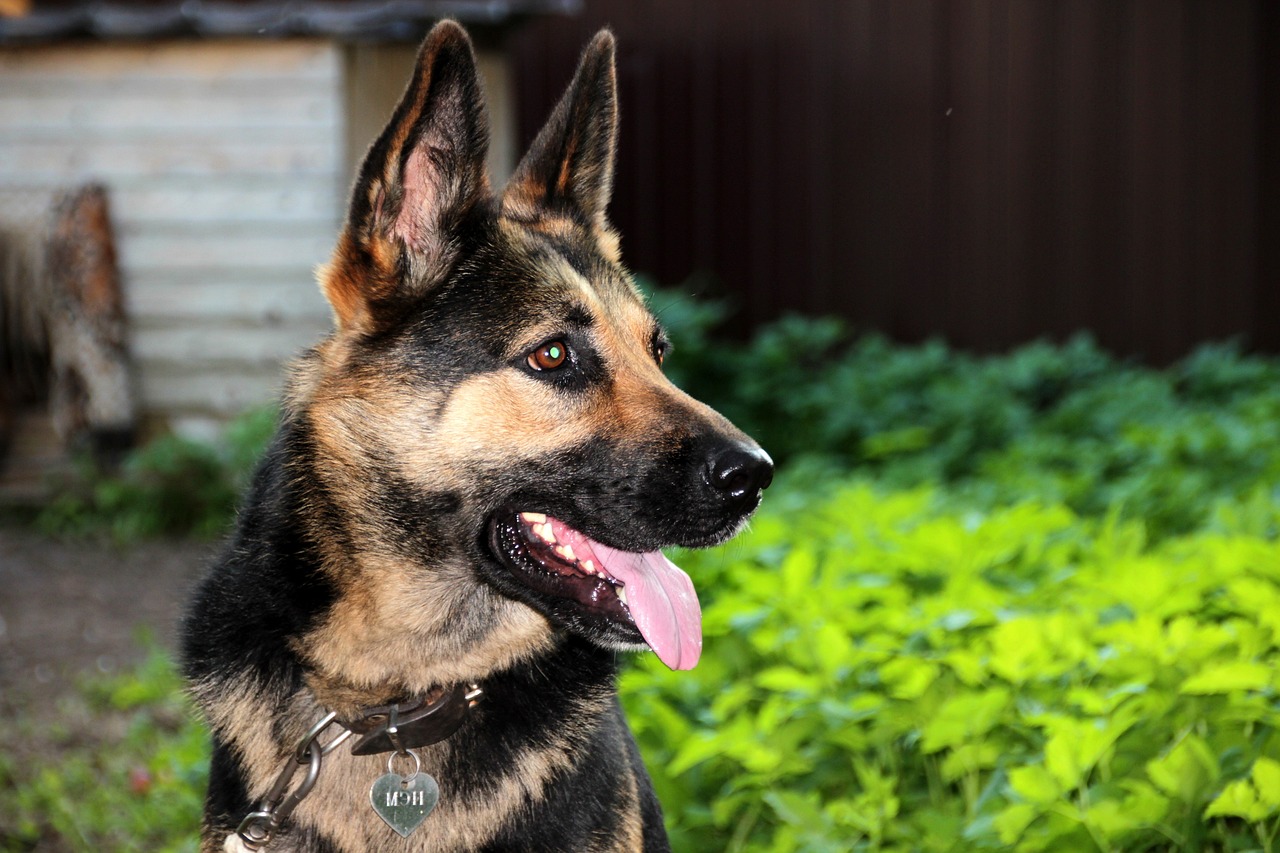German Shepherds, known for their intelligence and loyalty, are generally hearty eaters. A decrease in Appetite can signify various issues, ranging from minor to severe. This comprehensive guide delves into common reasons why a German Shepherd may not eat and provides insight on when to seek veterinary care.
Maintaining good nutrition is important: food is more than just fuel. This is how your dog’s body receives the nutrients it needs to run, play, and function correctly. A lack of good nutrition can cause your dog’s body to suffer in a number of ways, including weight loss, bone density, and dental issues.
If you have concerns that your dog’s eating habits have changed for the worse, be sure to contact your vet immediately. This guide can help you identify what the issue might be, but it is not a replacement for the personalized opinion of a veterinary professional.
Understanding German Shepherd’s Eating Habits
German Shepherds are known for their robust Appetite and usually look forward to meal times. Any significant change in this pattern can be concerning. Given their active nature, they typically require a well-balanced diet to maintain their energy levels.
Common Reasons for Loss of Appetite in German Shepherds
Stress and Environmental Changes
Stress can significantly impact a German Shepherd’s Appetite. Factors such as moving to a new home, adding a new family member or pet, or even changes in the household routine can cause temporary loss of Appetite. German Shepherds are susceptible to changes in their environment.
Dental Issues and Oral Pain
Oral pain from dental issues such as tooth decay, gingivitis, or broken teeth can make eating uncomfortable for your German Shepherd. Regular dental check-ups are crucial to prevent and address these issues.
Dietary Changes or Food Dislikes
German Shepherds can have specific dietary preferences and dislikes. A sudden change in their diet or a particular ingredient they don’t favor can result in them refusing food.
Health Issues
Various health issues, including digestive troubles, infections, or more severe conditions like cancer, can decrease Appetite. If your German Shepherd is not eating and shows other symptoms like lethargy, vomiting, or diarrhea, it’s time to consult a vet.
When to Visit the Vet
Prolonged Loss of Appetite
A German Shepherd refusing to eat for more than 24 hours should be a concern. This is especially important if they show other symptoms of illness.
Accompanying Symptoms of Concern
Symptoms such as vomiting, diarrhea, lethargy, or noticeable weight loss, along with a loss of Appetite, warrant immediate veterinary attention. These could be signs of severe health conditions.
Behavioral Changes
Significant behavioral changes, such as increased aggression, withdrawal, or unusual lethargy, combined with a lack of Appetite, should be professionally assessed.
Preventive Measures and Care
Regular Veterinary Check-Ups
Routine vet check-ups can help detect health issues that might affect your German Shepherd’s Appetite early. These visits are essential for maintaining overall health.
Consistent Routine and Environment
Maintaining a consistent routine and stable environment can help mitigate stress-induced loss of Appetite. This includes regular feeding times and regular exercise.
Quality Diet
Providing a high-quality, balanced diet suitable for your German Shepherd’s age, size, and activity level is vital. Consult a vet for dietary recommendations tailored to your dog’s needs.
- Contains no fillers, only quality proteins, veggies, vitamins, and minerals
- Pre-portioned meals are based on your dog’s unique dietary needs
- Formulated by in-house Board Certified Veterinary Nutritionists
- All foods are prepared, mixed, and packed with care in USA kitchens
- Shipped to you fresh, cold, and on your schedule
Monitoring Dental Health
Regular dental check-ups and at-home dental care are essential. This includes brushing your dog’s teeth or using dental chews approved by your vet.
A loss of Appetite in German Shepherds can stem from various reasons, from environmental changes to serious health issues. As a responsible pet owner, understanding these reasons and knowing when to seek veterinary help is crucial. Regular preventive care, a stable environment, and a keen eye for changes in your dog’s eating habits will ensure they remain healthy and happy.
Tips for Getting Your German Shepherd to Eat
German Shepherds, renowned for their strength and intelligence, typically have healthy appetites. However, they can sometimes exhibit pickiness or lose interest in their food. This article provides insightful strategies to encourage your German Shepherd to eat, ensuring they receive the nutrition for their active lifestyle.
Enhancing Meal Appeal with Food Toppers
Enticing Your German Shepherd with Flavorful Additions
Adding food toppers can be an effective way to improve the appeal of your German Shepherd’s meals. Toppers such as cooked lean meats, a spoonful of plain yogurt, or pureed pumpkin can add flavor and texture, making the food more enticing. Remember to ensure that any additions are safe and healthy for dogs.
Keeping the Diet Balanced
While toppers are great for stimulating Appetite, ensuring they don’t upset the nutritional balance of your dog’s diet is essential. Use toppers sparingly and choose options that complement the nutritional content of your German Shepherd’s regular meals.
Hydrating Dry Food for Palatability
The Benefit of Moistened Meals
Adding water or a low-sodium broth can make the food more appealing for German Shepherds eating dry kibble. The moisture enhances the food’s smell and can make it easier to eat, especially beneficial for older dogs or those with dental issues.
Gradual Introduction of Hydrated Food
Start with a small amount of liquid, gradually increasing it to find the consistency your German Shepherd prefers. This method also aids hydration, mainly if your dog doesn’t drink enough water.
Switching Dog Food Brands Thoughtfully
Finding a Formula Your German Shepherd Loves
Sometimes, getting your German Shepherd to eat regularly is as simple as switching to a different brand or formula. Each brand has a unique flavor profile and ingredient list, which might be more appealing to your dog.
Properly Transitioning to New Food
When introducing a new food brand, it’s essential to transition gradually to avoid digestive upset. Mix the fresh food with the old in increasing amounts over a week to allow your German Shepherd’s digestive system to adjust.
Creating a Positive Mealtime Environment
Establishing a Stress-Free Eating Space
Ensure your German Shepherd’s eating area is quiet and free from distractions. A peaceful environment can significantly improve their willingness to eat.
Consistency in Feeding Routines
Maintaining a regular feeding schedule helps regulate your dog’s Appetite. Feed your German Shepherd simultaneously each day to create a routine they can rely on.
Limiting Treats and Snacks
Managing Treat Intake
Reducing the number of treats between meals can help ensure your German Shepherd is hungry at mealtimes. Be mindful of the treat’s caloric content and how it fits into daily calorie intake.
Consultation with a Veterinarian
Seeking Professional Advice When Needed
If your German Shepherd’s Appetite doesn’t improve with these strategies, or if there are any signs of health issues, it’s crucial to consult a veterinarian. They can provide tailored advice and check for any underlying health problems.
Conclusion
Encouraging a finicky German Shepherd to eat can be challenging, but with the right approach, it is achievable. Experimenting with food toppers, hydrating their meals, switching food brands, and maintaining a positive eating environment are effective methods. Patience and consistency are essential, and veterinary advice should be sought when necessary to ensure the health and well-being of your German Shepherd.
Frequently Asked Questions About Why German Shepherd Might Not Be Eating
1. Why Might My German Shepherd Not Be Eating?
German Shepherds can stop eating because of stress, dietary changes, health issues, or being picky. It’s essential to closely monitor them for any other symptoms or behavioral changes accompanying their lack of Appetite. Consulting a vet is advisable if the issue persists or is accompanied by other signs of illness.
2. Is It Normal for German Shepherds to Skip Meals Occasionally?
It’s common for German Shepherds to skip a meal occasionally, especially if they’ve been less active or in hot weather. However, if skipping meals becomes a regular occurrence, it could indicate an underlying issue that needs attention.
3. Can Stress Cause My German Shepherd to Lose Appetite?
Yes, stress can significantly affect a German Shepherd’s Appetite. Changes in the household, loud noises, or separation anxiety are just a few stressors that can decrease the need in these sensitive dogs.
4. How Can I Tell if My German Shepherd’s Loss of Appetite is Due to Illness?
If your German Shepherd’s loss of Appetite is accompanied by other symptoms like vomiting, diarrhea, lethargy, or drastic weight loss, it could indicate an illness. These signs, especially when combined with a lack of eating, should prompt a visit to the vet.
5. Could Dental Problems Be Causing My German Shepherd Not to Eat?
Dental issues can indeed cause your German Shepherd to stop eating. Pain from tooth decay, gum disease, or dental abscesses can make chewing painful, leading to a reduced appetite.
6. Is My German Shepherd Not Eating Because of the Food?
It’s possible. German Shepherds can be particular about their food. Sudden changes in brand, flavor, or formula can lead to a refusal to eat. Introducing new foods gradually and observing your dog’s reaction is essential.
7. Should I Worry If My German Shepherd Misses One Meal?
Missing one meal isn’t usually a cause for concern. However, if your German Shepherd skips multiple meals or shows other signs of distress or illness, taking action and possibly consulting with a veterinarian is essential.
8. Do Vaccinations Affect My German Shepherd’s Appetite?
Vaccinations can sometimes cause a temporary decrease in Appetite in German Shepherds. If your dog doesn’t resume eating within a day or two after vaccination or shows other signs of discomfort, consult your vet.
9. How Long Can a German Shepherd Go Without Eating?
A healthy German Shepherd can technically survive for several days without food, but this is not advisable. If your dog goes more than 24 hours without eating, seeking veterinary advice is essential, especially if there are other signs of illness.
10. Can Changes in Routine Affect My German Shepherd’s Eating Habits?
Yes, German Shepherds are sensitive to changes in routine, which can affect their eating habits. Moving houses, family dynamics changes, or daily schedule alterations can impact their Appetite.
11. Are There Specific Health Conditions That Lead to Loss of Appetite in German Shepherds?
Several health conditions can lead to losing Appetite in German Shepherds, including gastrointestinal issues, infections, organ diseases, and cancer. A vet should evaluate any prolonged or sudden loss of Appetite.
12. Can Parasites Cause My German Shepherd to Stop Eating?
Yes, internal parasites can cause a loss of Appetite in German Shepherds. Other symptoms might include a bloated stomach, weight loss, and changes in bowel movements. Veterinary intervention is necessary for diagnosis and treatment.
13. Is a Loss of Appetite in Older German Shepherds a Sign of Aging?
As German Shepherds age, they may eat less due to decreased activity levels or underlying age-related health issues. However, a significant reduction in Appetite should not be overlooked as it could indicate health concerns.
14. What Should I Do to Encourage My German Shepherd to Eat More?
To encourage your German Shepherd to eat more, you can try introducing food toppers, hydrating their food, or switching to a different brand. Also, ensure a stress-free eating environment and maintain a consistent feeding schedule.
15. When Should I Take My German Shepherd to the Vet for Not Eating?
You should take your German Shepherd to the vet if they haven’t eaten for more than 24 hours or if other symptoms like vomiting, diarrhea, or lethargy accompany their refusal to eat. Getting a professional assessment to rule out serious health issues is essential.





 Toledo, United States.
Toledo, United States.
